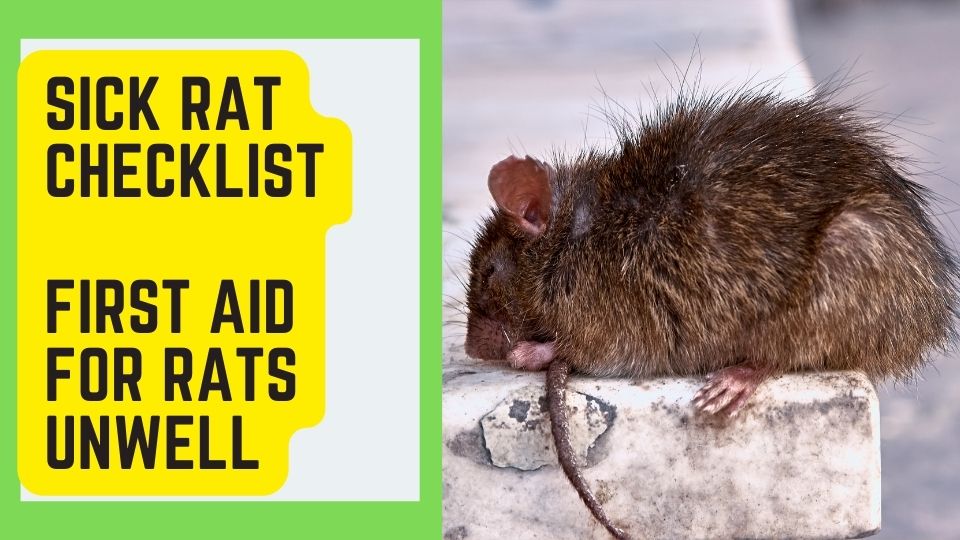When your rat is sick, they’ll need extra tender loving care. A while back, I took care of a very sick rat (who I eventually had to put down) and there were plenty of days I had to run out to the store to pick something up.
Here is a basic “nice to have” list when you are preparing a first aid kit for sick rats.
With rats, once they’re sick and showing, it’s usually a bad situation than you may think.
Sick rats tend to hide their symptoms since their prey animals.
Sick Rat Checklist
When they really start showing, it’s when they are too weak to continue hiding. So quick reaction time and excellent preparedness will help you.
Ensure Beverage
A good way to boost the amount of nutrition your rat is getting if they’re eating little to none. You can also soak lab blocks in this to make a mush to feed them.
Also, you can use a needleless syringe to feed them. Ensure is highly recommended to give your rat a nutritional boost.
Needle-less Syringe
Most vets will give you these if you take your rat in for a check-up but you can also find them online (linked above).
Needleless syringes are relatively cheap for the amount you pay for a pack of them.
You can use these to feed fluids or even soft foods.
The trick to getting your rat to take a needleless syringe is to always be gentle.
Being too forceful with a sick rat will frustrate them and your sick rat will become more stubborn.
– Baby Food
Get some baby food to help your sick rat take in more calories.
Feeding the more favorable types of foods such as sweet potatoes or bananas can really help boost their intake and keep them hydrated.
I also recently learned that my rats love squash. It’s important to not go overboard with the baby food and to always keep it fresh. Do not feed baby food that is more than a day or two old after opening.
There are two ways to feed the baby food. You can either spoon feed by scooping a small amount with a spoon and letting your sick rat lick it up.
This is the most preferable way as it’s less forceful and makes it a more enjoyable experience.
Veterinarians’ Phone Number
It’s important to have your primary vet’s phone number and an emergency 24-hour vet’s phone number.
If, for example, a sick rat that has an upper respiratory infection should go in as soon as possible for a check-up and medications.
You should take along the RMCA Drug Chart to have as a handy reference.
There are good vets that will treat your rats and are very knowledgeable. However, there are others
Gauze
If your animal is injured or bleeding, be sure to have some clean gauze around to apply pressure. If severe, contact your veterinarian. A set of clean washcloths will also work.
A clean cage
It’s a good idea to have a “sick bay” for your rats to recuperate.
This can be just a simple cage (like the one I linked above) lined with lots of towels and fleece if needed.
Give the rat plenty of nesting material and be sure to clean out any waste.
A clean environment helps the rat keep himself clean.
Antibiotics
This takes a bit of knowledge if you’ve never administered antibiotics.
However, if you contact your local rescue, they can help you out with the dosage and where to get it.
Most rescues will sell you antibiotics on hand and recommend to you a veterinarian.





Leave a Reply
You must be logged in to post a comment.